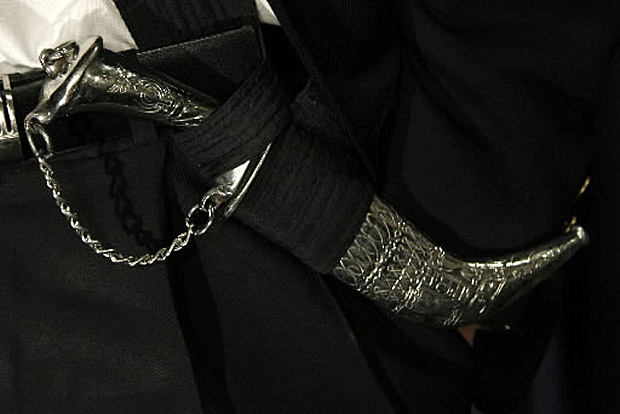QUEBEC – Members of Canada’s Sikh community said they were “disappointed” Wednesday evening after Quebec’s national assembly adopted a motion by a vote of 113-0 supporting the decision by security workers to bar four Sikhs who came to the assembly to testify on Bill 94, banning Islamic face coverings.

The four refused to remove their kirpans, small ceremonial daggers. In 2006, the Supreme Court of Canada ruled that the kirpan, which Sikhs carry wrapped in fabric under their clothing, is not a weapon but a religious symbol, like a crucifix.
“We’re disappointed that the wearing of the kirpan, which is a human rights issue, has been politicized,” Balpreet Singh, legal counsel representing the World Sikh Organization of Canada, said in a statement. “Today’s vote represents a turn away from the values of tolerance and multiculturalism.”
Louise Beaudoin, the Parti Québécois member for Montreal’s Rosemont riding, presented the motion, telling reporters she did so because provincial Immigration Minister Kathleen Weil remained neutral on the kirpan ban.
Beaudoin said she wanted to know where Weil stands on the issue of security versus religious freedom.
And she said the Sikhs should have been ready to make an accommodation by checking their kirpans with assembly security.
“Frankly, they could have made an effort to respect our institutions and our values,” she told reporters.
Beaudoin noted that while Weil says the Liberal government is neutral, there are no legal texts in the province affirming that neutrality.
“We want to amend the charter of rights and liberties,” Beaudoin said.
At present, Quebec’s human rights charter states that all rights are equal, calling for accommodation when conflicts arise to ensure all rights are respected.
Beaudoin said multiculturalism is a Canadian value, not a Quebec value.
She said multiculturalism was promoted in the 1970s by the late Canadian prime minister Pierre Trudeau, in the hope that the “French-Canadian minority”would be marginalized among all other minorities in Canada.
She called multiculturalism “divisive”and pointed out that no Quebec government has signed the 1982 constitution, enshrining multiculturalism as a Canadian value.
“It seems this debate is no longer about the niqab or the kirpan, it’s about the inclusion of minorities in Quebec,” said Singh.
Weil said assembly constables were acting within their jurisdiction in asking the Sikhs to check their kirpans.
“We are all agreed,” the minister said. “We support the decision that was taken in January.”
While the PQ wants the government to adopt a law banning all ostentatious religious signs, ending the “case-by-case” process of granting “reasonable accommodations” for religious differences, Weil said her Bill 94, dealing solely with Islamic face coverings, such as the niqab or burka, is “common sense.”
And she noted polls, when Bill 94 was presented, showing 95 per cent support in Quebec and 80 per cent support in the rest of Canada for her position.
Carole Poirier, the PQ legislator for Hochelaga-Maisonneuve, said banning the kirpan was justified by the May 8, 1984, shooting spree, when Cpl. Denis Lortie, armed with two machine guns, burst into the assembly building, killing three people and wounding 13 others.
“Are we going to allow the Supreme Court of Canada to dictate to us?” Poirier asked.
Montreal Gazette



Comments